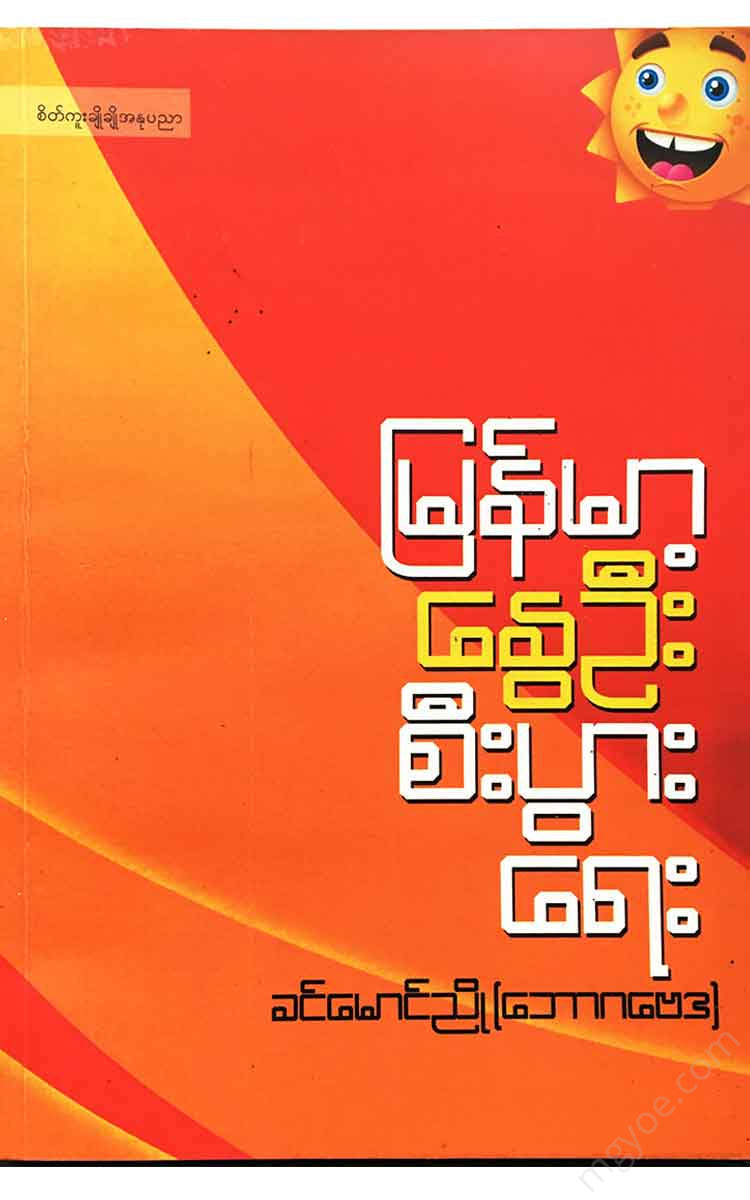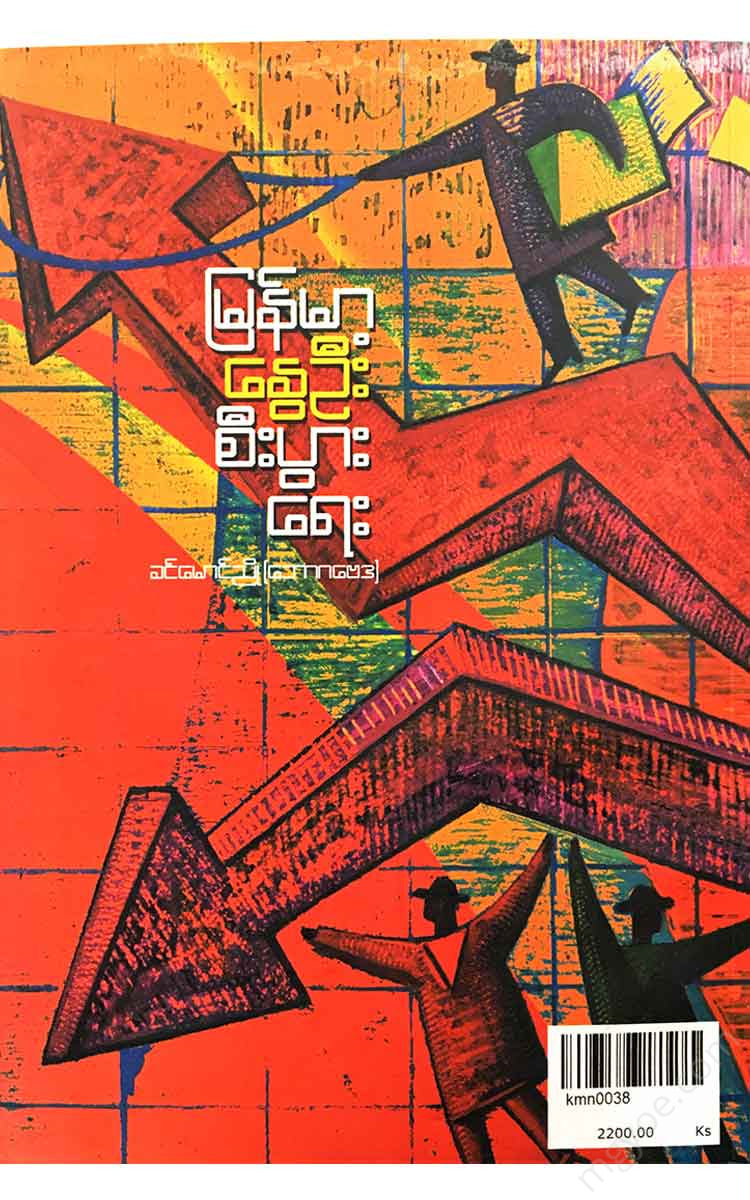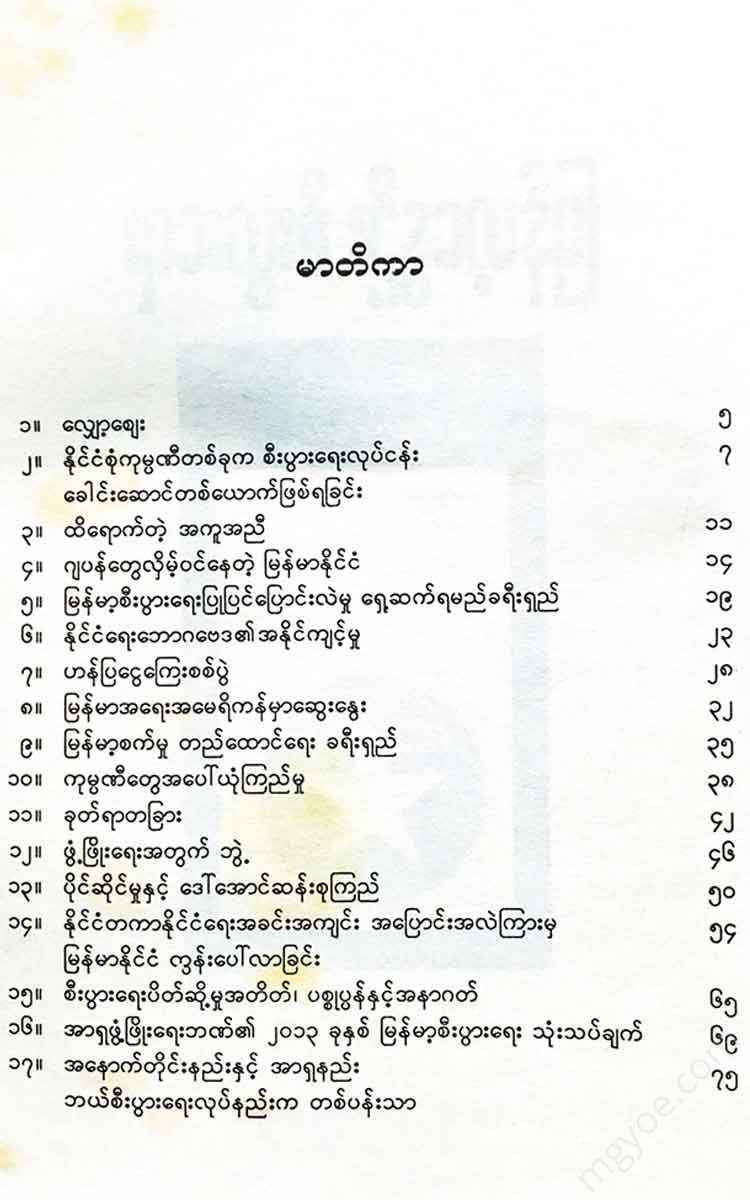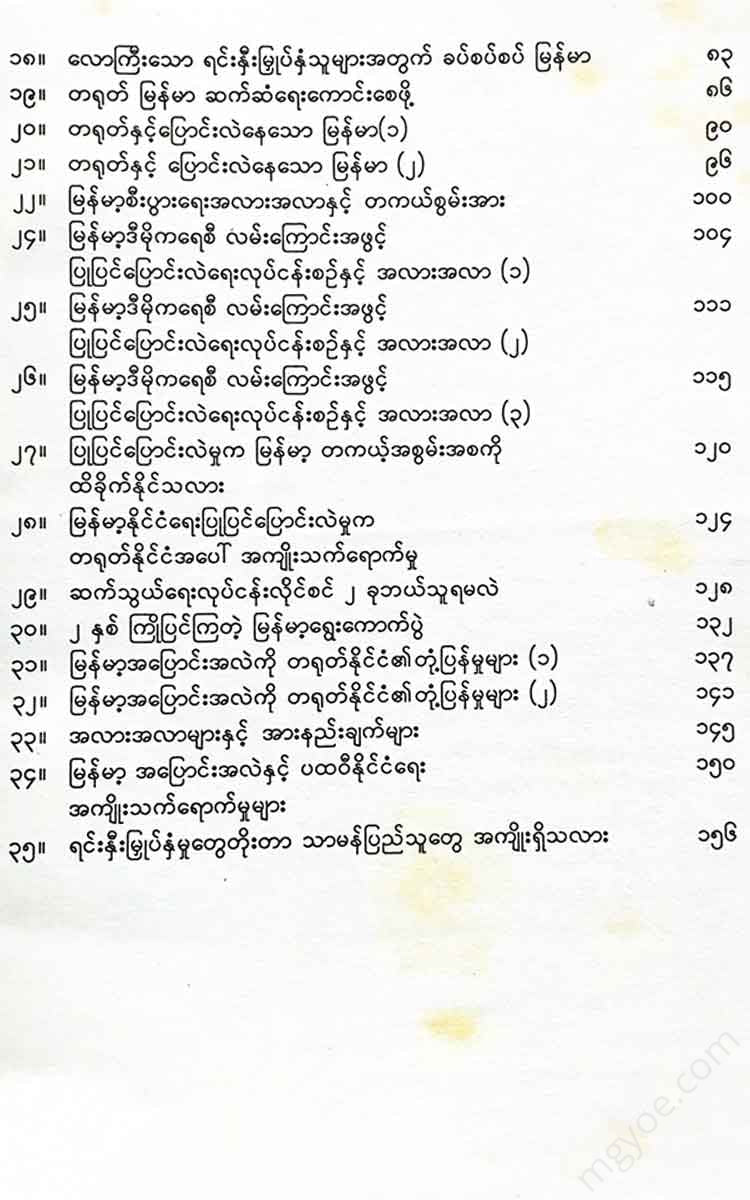စိတ်ကူးချိုချိုစာပေ
Khin Maung Nyo (Economics) - Myanmar Summer Leadership Development
Khin Maung Nyo (Economics) - Myanmar Summer Leadership Development
Couldn't load pickup availability
Discount price
Selling at a discount is a way to boost sales. Selling at a lower price than the original price is a good deal for both the seller and the buyer. Especially the buyer is more satisfied because they get what they want at a lower price. In fact, selling at a discount is not a big deal. It is a way of making money. Businesses do it because they know that if they sell at a lower price, buyers will become greedy. They do it because they know that they will get more profit. This method has become popular in the business world.
Not only in the business world but also in everyday life, workers have the desire to give less and to do less.
In the workplace, some employees do not work at full capacity, but only at 70 or 80 percent. When faced with difficult or long tasks, they work less. They work less. They just live their lives. They work to make themselves comfortable. Those who work less think they are doing good, but from the employer's perspective, employees who work less are corrupt.
Some people try to be the best, the fastest, the most accurate, the most perfect. They work their best. They are loyal. Some people just do it. Even the person in charge doesn't have to say anything. The bystanders see who benefits and who suffers.
What is valuable and what is not in the world depends on how useful it is and how necessary it is. If it is useful, there is no need to bargain for it. If it is unnecessary, there is no need to bargain for it. Therefore, we should not be greedy for a little extra profit. We should clearly understand the value of usefulness. When we speak, what we say should be valuable.
I had the opportunity to attend and study the opening ceremony of the Center of E_cellence, which was opened at the Yangon University of Economics on January 16, with the support of PepsiCo and a UNESCO program. I also had the opportunity to listen to a lecture by the President of Pepsi Asia Pacific.
The aim of the center is to improve the business skills and employability of young people in Myanmar. Pepsi is a world-renowned company that promotes ethical practices, diversity, and employee engagement. The center will provide vocational training, short-term courses, and guest speakers. It will also provide information and communication technology training. It was very interesting to see Miss Bieber talk about “Becoming a Business Leader in a Multinational Company” at the opening of the course, so I would like to thank him again.
In fact, Pepsi sees us as a beverage company, but it wasn't until he told us that we were the largest agricultural company in the world, that we needed 600,000 tons of potato chips (Frito-Lay) oposode 327:05 & gouf:ognóciosenqui: 9000i Quaker oak gaozas, 3 million tons of oranges and other fruits and vegetables, and that we were doing agricultural work in over 30 countries.
In the Asia-Pacific region alone, there are 25 markets covering 22 countries and covering an area of over 5.7 million square miles with a population of about 1 billion. The way of doing business is not the same: 5 are joint ventures, 16 are company-owned factories, 21 are franchised, 6,300 employees are from 25 nationalities, and 37% of the executives are women. There are 70,000 franchise employees and over 6,800 farmers.
In Pakistan, Thailand, Vietnam, Indonesia, Australia and New Zealand, farmers and local people have been working together on 10,875 hectares of land. There is potential for similar collaboration in Myanmar, an agricultural country.
In my mind, if international companies enter Myanmar, they will gain some market share, but because they know their own country and their own market, there will be many areas where they are unique. After listening to Pepsi’s discussion, that view has been somewhat weakened. They produce brands and products that are distributed worldwide, but they also produce local, local-specific brands and products. They get the preferences and expectations of the local people through local employees. To what extent can local companies understand and value the preferences of the local people, the expectations of the local people, and the expectations of the market?
Under the motto "Performance with Purpose," we will invest in people and the planet for a healthier future, looking at long-term gains. We believe that if everyone benefits, it will benefit business as well.
After his talk, a student asked about corporate social responsibility. Although they don't use the term specifically, it seems to be embedded in the way their businesses operate.
His approach is based on four objectives. Here, we see the concept of sustainable, which we use in relation to environmental conservation, combined with financial, human, and talent. Financial sustainability is about investing in people who have the ability to care for the Earth's natural resources and in the development of humanity, so that they can continue to have access to the talents and skills they need to sustain their lives.
The current business environment can be summarized in three points: It is becoming more complex. Trust is declining. Connectivity is increasing.
The scarcity of key natural resources is a cause for concern, but it is also an opportunity for responsible consumption, education, and collaboration between governments and civil society. We are witnessing instability in the global economic structure, increasing natural disasters, and the eurozone in particular. Public trust in governments, companies, executives, and the financial sector is declining significantly. Businesses need to do things that benefit society.
To be visible, you need the right leadership and real communication. Social media is also becoming more powerful.
Pepsi's leadership style includes the right methods of motivating, inspiring, collaborating, and influencing others to participate, as well as acting in accordance with knowledge and building trust.
Pepsi's values include being kind to customers, consumers, and the world we live in; selling only products we are proud of; speaking the truth and being honest; balancing short and long-term goals; embracing diversity and succeeding; and respecting others and succeeding together.
He didn't speak alone, but rather introduced the people who accompanied him, including Indians and Vietnamese citizens, to answer the questions, which was also unique.
Leadership is about taking responsibility, making timely decisions, finding the right market to focus on, making your employees act as ambassadors, being innovative, and focusing on employee well-being and satisfaction. //
Effective help
As Myanmar's economic and political doors open, international aid will begin to flow in. Discussions have begun on how to effectively and efficiently utilize this international aid.
When we were young students , we used to hear discussions about which was more beneficial: international aid or trade .
Of course, our country receives little international aid and international trade is not very large. What I still remember is that I have read and remembered the argument that if you rely on others, you will become more dependent, and that if you rely on others to develop your country, you will eventually become independent.
Sometimes, we wonder whose benefit we are giving help for, whether it is for the benefit of the person giving the help, the benefit of the person receiving the help, or whether we are just pouring water on the ground for the sake of profit. Of course, much of the help that we have given in the past and are still giving now is given according to our own plans, rather than what people want or need.
One day, I met some Chinese economists and professors. They wanted to know how they could effectively help Myanmar. They said they would go to Myanmar and other countries to study the social responsibilities of Chinese companies.
A female editor from Myanmar said that the Burmese people don't want compensation. They want jobs and improvements to their livelihoods.
Japan used to provide assistance for transportation infrastructure. It was not usually based on values or political views, but that has changed since then.
China has been providing a lot of infrastructure assistance so far. There is a saying in China too: "If you want a village to prosper, first build a road."
When asked what the purpose of the aid was, what they wanted to help for, they said it was to achieve the Millennium Development Goals and economic development. Back then, there were political and social goals. It is good to provide aid after assessing what people want and need in advance. Here too, the assessment of top government officials and needs may differ from the assessments and needs of the people and villagers.
Here, we also need to re-evaluate previous projects and identify lessons learned. Where, in which region, and in which sector do we want to help?
There is also a way of giving aid. Whether it is technical assistance, or once upon a time, a program was planned to provide assistance, even Myanmar experts were not allowed to participate. They were brought in by their own people and completed. Some aid is given in cash, while others are given in kind. The way of distributing it is also given in lump sum, divided by year and time.
When it comes to distributing aid, in the past, it was mostly distributed through the government, and then through their own programs like the United Nations Development Program, but now it is being distributed through civil society organizations. And how long will the aid be provided? Will the project be sustainable after the project is completed?
It's not a good idea to just ignore the project once it's finished. Even while implementing an aid project, there is monitoring, post-project evaluation, and possibly the use of an intermediary organization.
Now, aid is increasingly directed towards education and health. Some aid that used to be linked to trade and investment is now turning to social issues. And there is no single Western aid method that is best, but rather, there are now tripartite aid programs that combine the expertise and experience of emerging countries and match them with the needs of the host country.









